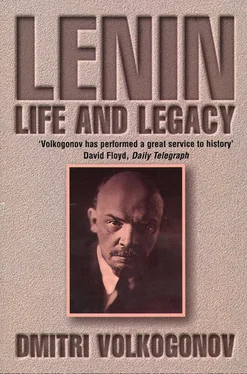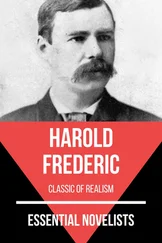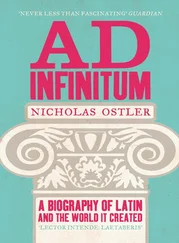1 ...6 7 8 10 11 12 ...39 Having settled in Simbirsk in 1869, the Ulyanovs lived the life of most civil service families or bourgeoisie of the period. Like most provincial towns at that time, social life in Simbirsk was not especially stimulating. Trade and commerce were the dominant activities, while various educational and cultural establishments provided spiritual and intellectual nourishment. Both Ulyanov parents, however, had high aspirations for their children, and their efforts left their mark. Vladimir, who was born in April 1870, had two brothers and three sisters: Anna (born 1864), Alexander (1866), Olga (1871), Dmitri (1874) and Maria (1878). Another brother, Nikolai, born in 1873, died in infancy, and another sister, also called Olga, died at birth in 1868. (The second Olga died at the age of twenty.) Lenin’s mother did not attend university, but was nevertheless well educated, thanks to the efforts of her aunt, Yekaterina Groschopf. Much has been written about the education of Lenin and his siblings, some of it accurate, but also much that is sugar-coated and exaggerated. Some authors have almost suggested that Lenin’s genius emerged while he was still in nappies. I do not intend to recount the domestic life of the family in detail, but to pick out some salient features that are sometimes missed.
The young Vladimir – invariably known in the family as Volodya – was a gifted and capable child, qualities enhanced by the comfortable, supportive atmosphere of the home, thanks to his father’s successful career. The family lived in a good house, the three eldest children each had a room of their own, there was a cook, a nanny, and servants to deal with the domestic chores. Lenin himself recalled that the family lacked for nothing. An outstanding teacher and advocate of state education, his father rose to become director of the province’s schools in a few years. He was well regarded by the authorities and was awarded several decorations, including the Order of Stanislav, First Class, finally achieving the rank of State Counsellor, corresponding on the Table of Ranks to the title of general. Having become a hereditary noble through his service career, he thus conferred the same privileged status on his family. The Ulyanovs’ life was stable and secure – until, that is, Ilya Nikolaevich died in 1886, and, out of the blue, the eldest son, Alexander, was arrested and hanged in the following year.
Volodya was always top of his class, but he showed none of the ‘revolutionary free-thinking’ described by many of his biographers. It is surely one of the most striking ironies of modern Russian history that the headmaster of his high school should have been Fedor Mikhailovich Kerensky, father of the future ‘hero’ of the February revolution of 1917 who was to be the last obstacle to the Bolshevik seizure of power in October. Kerensky père often publicly expressed his admiration for the ability and diligence shown by Volodya Ulyanov. Volodya, meanwhile, was acquiring a strong intellectual foundation as a result of family support and encouragement from his teachers. He was also acquiring deep self-confidence and a sense of superiority over his peers. He was the family favourite, accustomed to being the centre of attention. Not that he was vain, but neither did he conceal his moral ‘right’ to the primacy he believed was his, and even at that early stage he seems to have shown intolerance of other people’s views. One of Alexander’s school friends, V.V. Vodovozov, recalled that he realised, after visiting the Ulyanovs, that it would he impossible to become a close friend of Vladimir, whom he thought rude in argument, excessively self-confident and self-important, and puffed up by being thought a genius within the family and an infallible authority outside it. 21
Lenin’s intellectual and political self-definition still lay in the future, but one of the most decisive landmarks along the way was the fate of his brother Alexander. The age difference of four years between Alexander and Volodya meant that, as children, the younger boy very much looked up to his elder as a superior being, a hero figure, a rôle which Alexander evidently played with relish. Alexander, moreover, as the eldest child, and perhaps the brightest, also set a pattern of behaviour and activity at home that was bound to encourage his juniors to do their best intellectually: in his teens he edited a family weekly to which everyone was expected to contribute. 22 The sudden and traumatic removal of such an admired and loved member of the family was bound to have a powerful effect on the lives of the others.
The execution of Alexander was a tragedy that struck at the entire family. In the young Lenin, it sparked a surge of rebellion, although it was not as literal and direct as post-revolutionary myth would have us believe. It was customary among Soviet historians to quote the words he is reported to have uttered to his sister Maria, then aged all of nine, when news of Alexander’s execution reached the family: ‘No, we will not go that way. That’s not the way.’ 23 According to the official accounts, the fate of Lenin’s brother ‘reinforced his revolutionary views’. 24 He may well have spoken those words to his little sister, but the fact is that at this age he held no revolutionary views whatsoever, and he could not have distinguished one revolutionary ‘way’ from another.
The death of his father, undoubtedly a major tragedy and economic disaster for the family, has also been depicted in official Soviet literature as an event of ideological significance in the life of the young Lenin. Most writers followed Nadezhda Krupskaya’s clumsy assertion of 1938 that Lenin’s father’s views exerted a revolutionary influence on his children: ‘As a teacher, Ilya Nikolaevich read Dobrolyubov with particular interest. Dobrolyubov conquered the honest heart of Ilya Nikolaevich and defined his work as schools director and as the mentor of his son, Lenin, and his other children, all of whom became revolutionaries.’ 25 This is far from the truth.
A well educated, cultivated man of his time, Ilya Ulyanov was also deeply pious and rather conservative. His eldest daughter, Anna, recalled that he ‘had never been a revolutionary and wanted to protect the young from that way of thinking. He much admired Alexander II whose reign, especially its first phase, was for him “a bright period”.’ 26 The 1860s had been a period of ‘great reforms’, when the serfs had been emancipated, a measure of local self-government introduced in the provinces, the judiciary allowed to become a free professional corporation, universities and schools expanded and given greater autonomy: in a word, Russia had been launched on a path of reform in the general direction, if not of liberal democracy, then at least of social modernization. The climate of reform, combined with the government’s fear of going too far, too fast, also gave rise to a revolutionary movement, whose members – mainly students – felt that nothing would change fundamentally for the better unless the whole political structure was demolished, or at least the tsar was removed. To support the reformist trend was to be progressive, to oppose it reactionary, and to dismiss both sides of the argument revolutionary. Ilya Ulyanov definitely belonged to the first category.
Ilya’s youngest daughter, Maria, also attested to his civic loyalty: ‘[He] was not a revolutionary, and we don’t know enough to say what his attitudes were to the revolutionary activities of the young.’ 27 It would, however, be safe to assume that, as a teacher with a profound sense of vocation, he did much to create a democratic, humane atmosphere in the household. The harmony between husband and wife, their concern for the children, the equality between the siblings, the culture of hard work and diligence, all helped to form an extremely favourable soil for the seeds of free thinking, should they fall there. Ilya Ulyanov, in other words, created the preconditions for his children, above all Alexander and Vladimir, to be receptive to radical ideas. Ilya Ulyanov did not make Lenin a revolutionary; he and his wife merely cultivated in their children the ability to change, to feel the need for change. When Lenin’s father died in January 1886, Vladimir was not yet sixteen.
Читать дальше












